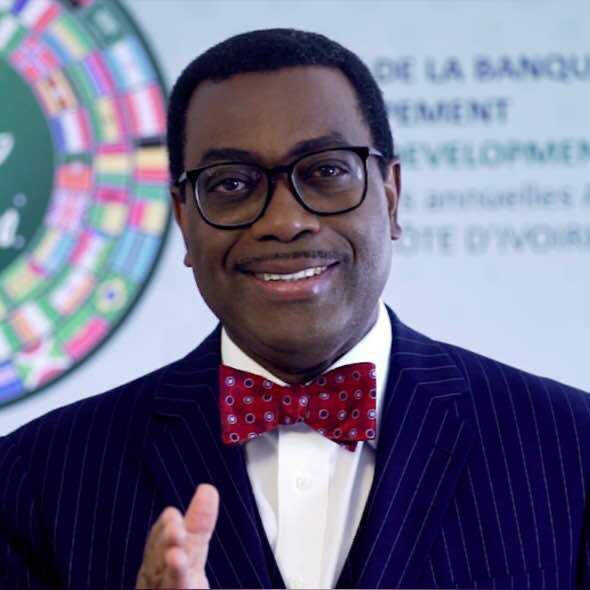The George Weah-led administration’s pro-poor agenda has been the bedrock of the government’s policies and programs. In this exclusive interview with African Leadership Magazine UK team in Monrovia, the Chief Executive Officer, Liberia National Port Authority, Hon. Bill Tweahway, talks about the agency’s milestones in a short space of two years, as well as her support for the government’s Pro-poor agenda. Excerpts:
It’s been over two years since you came on board as the Managing Director of Liberia’s National Port Authority. What are some of the high points of your leadership?
For the last two years and four months, the significant achievement we had was the erection of this edifice, which houses the National Port Authority’s headquarters. Before my appointment and shortly afterward, our offices were in tanks and containers. Today we are in offices that are befitting a corporate institution.
Speaking of achievements, we are on the verge of creating the first inland port; we have secured about 175 acres somewhere at the outskirts, an approximately 30-minute drive from the Guinean border and about 3 hours’ drive from the Ivorian border. We plan to create a first inland port. We consider that a significant achievement. The land has been bought, and we are now looking for investors. For now, we have more than five different investors who have expressed interest in creating a BOT with the Liberian Government. We will soon start a building process through the Liberian investment commission.
Another significant achievement is the creation of jobs. When we came in, there were about 400 people earning income from the Liberian Port Authority. Today we can say that we have a little over two thousand four hundred persons who are earners of income from the national port authority. So that’s a giant step with our people who did not have income, so we consider that a significant achievement because unemployment worldwide is a setback for the economy in any country.
So, we consider job creation a significant milestone of this current leadership. Without colossal income disparity, for example, the gross under the last Government was 300,000. However, today our pay role is about 1.1 million, and we are still managing, not a single complaint, we pay our people on time; in fact, we are creating other incentives. Before we came, our contractors had no additional incentive apart from their salary,
but today all contractors working in the national port authority are beneficiaries of a rice bag that they can take home to add to their salary so that food can be at home. They never use to earn such an incentive, but we are giving all contractors, irrespective of their status or income, you are entitled a rice bag.
Another significant achievement is our robust engagement with the APM terminal. Before we came, the terminal was a no-go zone, you can’t discuss or interact with them, but today we are working with them. There is harmonious coexistence between the NPA and the APM terminal. We are always checking on them to make sure that they give all their best for the country. We think that our two years have been successful and we are hoping and praying that the years ahead will be better than what we have today.
Another development I have not mentioned is that you know in the port industry, there are significant things you have to do to maintain your port; one of these is dredging. You have to dredge the port so that it would be appropriate and bigger vessels can come in. So last year, we were able to dredge the port. We do not want it to be one-time dredging; we are now in negotiation with COMETS, who have expressed interest in making sure that the port is dredged again beyond where it will accommodate bigger vessels. So somewhere in March, we will have another dredging process that will be sponsored by CONEX and will be managed by us with our technicians who have the expertise.
So consistent dredging of the port to make it comparable with other ports worldwide is another major achievement.
So, we are prepared to accommodate bigger vessels to the port’s gravity, and as long as we are here, we would be prepared to do periodic dredging. We will not wait until the debt is far below before we dredge. We will continue to dredge so that we can accommodate bigger vessels.
The Weah-led administration has zeroed in on poverty alleviation as a cardinal part of his administration. How is the NPA, under your leadership, helping to promote the Government’s pro-poor agenda?
Yes, the NPA is a significant contributor to the President’s project. For example, when a fire outbreak recently destroyed many properties, the NPA rose to the occasion. We contributed through our corporate social responsibility, and today houses are being built, and our people are now living in better homes. The President’s vision is to lift those who find themselves in abject poverty and deprivation from that stage to a better location, and one area of concern is that our people in chaff houses should leave there and live in better homes. So NPA has been contributing to that direction.
One of the President’s central vision is to ensure that all our market women do not sell under the rain or the sun, but that market buildings should be erected. The NPA also contributed to constructing the market on the old route where the people were seen in chaff and trampoline; today, they have a better market, and they are proud of it.
So, when it comes to supporting the pro-poor agenda for prosperity and development, we have contributed.
We have also contributed through the budget; like a year back, we contribute five million to the budget, which was the highest ever since the port authority’s inception. No past administration of the NPA has contributed above 3 million. We are the first to break that tie to contribute five million to the national budget.
Another addition is that we also engage with the national central Government. You know the President’s vision is to ensure that the best things happen to this country. One area of interest to him is creating a special economic zone, so the NPA had given about 500 Acres. Soon, the Government, through the President’s effort, will be starting the first major special economic zone in the country. These are some of the processes we have engaged in, and we hope to do more.
There are vision bearers, and there are implementers and soldiers at the battlefront that will implement the vision. We are Vision bearers, and if you see any infrastructure development in the country, it is often through the guidance of His Excellency. The concept of the Inland port was his idea.
You know, he traveled across the globe as a professional soccer player. So he saw a lot of things, and he saw inland ports in other areas. So that is a motivational aspect of the President that stands as a motivation for us in infrastructure development.
COVID-19 induced disruptions have slowed down economic activities across significant economies around the world. How has the pandemic affected, and what measures are in place to minimize the impact?
When COVID came, the President told me not to close the port because goods will have to go in, but the mechanics and I put in place for the port’s security is essential. Based on his advice, we ensured that nobody who came with any ship here was allowed to touch our soil. Only goods were allowed to go down, but no human being was allowed to come down.
The COVID-19 is an international export commodity; you get it from somewhere and export it to another country, and its medium of exporting is through human beings. We made sure that all ships that came, wherever you came from, your crew member will remain in their offices, room and were not allowed to go outside. So that was the first thing we did, and I’m happy that the International Community ships that came abided by our protocol. When they wanted anything, they got it through a second party.
When COVID came, on the record, I stand to be corrected nobody from the Liberia NPA died of covid-19 because the requisite mechanism and safety protocols were put in place. When it comes to the economic meltdown and its effect, somebody told me that there will always be a need for goods and services. There might be a drop in the rate of goods that come to our shore, as is the case during the Crisis. So we have a little slow down in the number of goods. We are grateful to God.
One more thing is that, because of the Covid, we reduce our workforce by 75%. In an office where we had 12-15 persons, you will find only three persons. We made some people work from home. So that what we also did that made us had no record of a single covid-19 case.
But there was no downsizing?
No. the President does not believe in that. The President has never downsized anyway in this Government; he encourages everybody to work. He tells me every day – we are all Liberians, and nobody has more claim to Liberia than any other person. We all have ownership of this land, and all of us have the right to work.
January this year signaled the commencement of the African continental free trade agreement. Top among the concern by stakeholders in managing tariffs and movement of goods and services. What are the prospects for success of this agreement viz-a-viz these concerns?
Liberia passed a law sometime in 2010 that we inherited that give the exclusive right to the APM terminal to increase tariff every year based on the inflation index. If you are to do the inflation index’s mathematics, that means tariff will increase every year, and there will be no year that tariff will reduce.
So our people gave APM terminal the right in the law to increase tariff. Ideally, it would be best to increase the tariff when there are losses, but that has not been Liberia’s case. You make a profit; your profit is incremental. Why do you increase the tariff?
So, we have been meeting with the APM terminal team on a heated debate that you cannot burden our people with more tariffs when an economic meltdown affects the entire world. In places like America, you see up to a trillion-dollar for a relief package. We don’t have a relief package; we should have a plan for our people. We say no, you can’t do that at this time.
We support the idea of free trade in the interest of the masses, and we are working with our partners to make sure that our people don’t be burning with tariffs.


